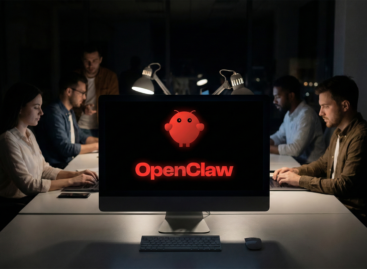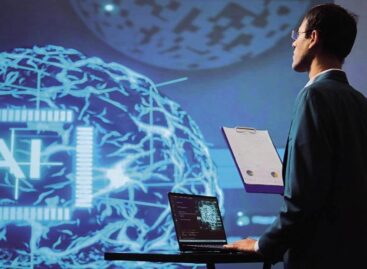The AI agent is both a tool and a colleague
The adoption of AI agents, or AI agents, that can plan, act, and learn independently, is growing faster than the adoption of artificial intelligence. 35% of companies are already experimenting with AI agents, and another 44% plan to implement them in the near future, according to new research from MIT Sloan Management Review and Boston Consulting Group (BCG).
 Unlike previous technologies, AI agents are not just tools to be operated or assistants waiting for instructions. They are increasingly acting as independent teammates, executing multi-step processes and adapting along the way. It is noteworthy that according to the research presented on Tuesday, conducted by 2,102 leaders in 116 countries and 21 industries, 76% of the leaders surveyed see them as collaborators rather than tools.
Unlike previous technologies, AI agents are not just tools to be operated or assistants waiting for instructions. They are increasingly acting as independent teammates, executing multi-step processes and adapting along the way. It is noteworthy that according to the research presented on Tuesday, conducted by 2,102 leaders in 116 countries and 21 industries, 76% of the leaders surveyed see them as collaborators rather than tools.
As a result of the spread of AI agents, more than 40% of leaders believe that their company will hire generalists rather than specialists in the future, while 45% expect a decrease in the number of middle management positions and 29% expect a decrease in the number of entry-level positions.
“Throughout history, there has been a clear separation between technology and people, and management processes have been built around this distinction. However, AI agents are both tools and teammates, colleagues. This means that in the future, those organizations that accept this duality and that do not underestimate the dual nature of AI agents will be successful. “They see it as an advantage, not a flaw,” said Ákos Turny, Global GenAI Transformation Director at BCG. 95% of employees who have worked with agent-based AI said that AI has had a positive impact on their job satisfaction, and 76% of them said that using AI has made them stand out from their peers, compared to 49% of those who don’t use the technology. AI agents are increasingly present in many organizations, but few organizations have developed the frameworks needed to redesign their workflows, governance models, investment plans, and talent strategies to keep up with this unprecedented change.
“Agent AI has the potential to transform entire workflows and challenge existing business processes. An organization can only be successful if, instead of trying to force agent AI into existing structures, it is willing to rethink processes,” said Zoltán Bakonyi, project manager at BCG.
According to the research, organizations that are at the forefront of using agent AI are much more likely (66%) to expect a change in their operating model than companies that are just starting to use the technology (42%). 58% of executives at companies using agent-based AI expect changes to their management structure in the next three years, and believe that the decision-making power of AI systems will increase nearly threefold during that time.
The study can be downloaded here.
Related news
Expert: EU AI regulation is here, but Hungarian businesses will have time to prepare for the changes
🎧 Hallgasd a cikket: Lejátszás Szünet Folytatás Leállítás Nyelv: Auto…
Read more >A developing digital employee who works independently – AI has taken the next level
🎧 Hallgasd a cikket: Lejátszás Szünet Folytatás Leállítás Nyelv: Auto…
Read more >Hungarian world first: AI calculator calculates how much a company will lose during the flu season and how much can be saved by using preventive technologies
🎧 Hallgasd a cikket: Lejátszás Szünet Folytatás Leállítás Nyelv: Auto…
Read more >Related news
Will AI tell us what we can buy in stores and for how much?
🎧 Hallgasd a cikket: Lejátszás Szünet Folytatás Leállítás Nyelv: Auto…
Read more >Important legislative changes: certain consumer rights now extend to SMEs
🎧 Hallgasd a cikket: Lejátszás Szünet Folytatás Leállítás Nyelv: Auto…
Read more >AM: focus on the role and protection of medicinal plants
🎧 Hallgasd a cikket: Lejátszás Szünet Folytatás Leállítás Nyelv: Auto…
Read more >








